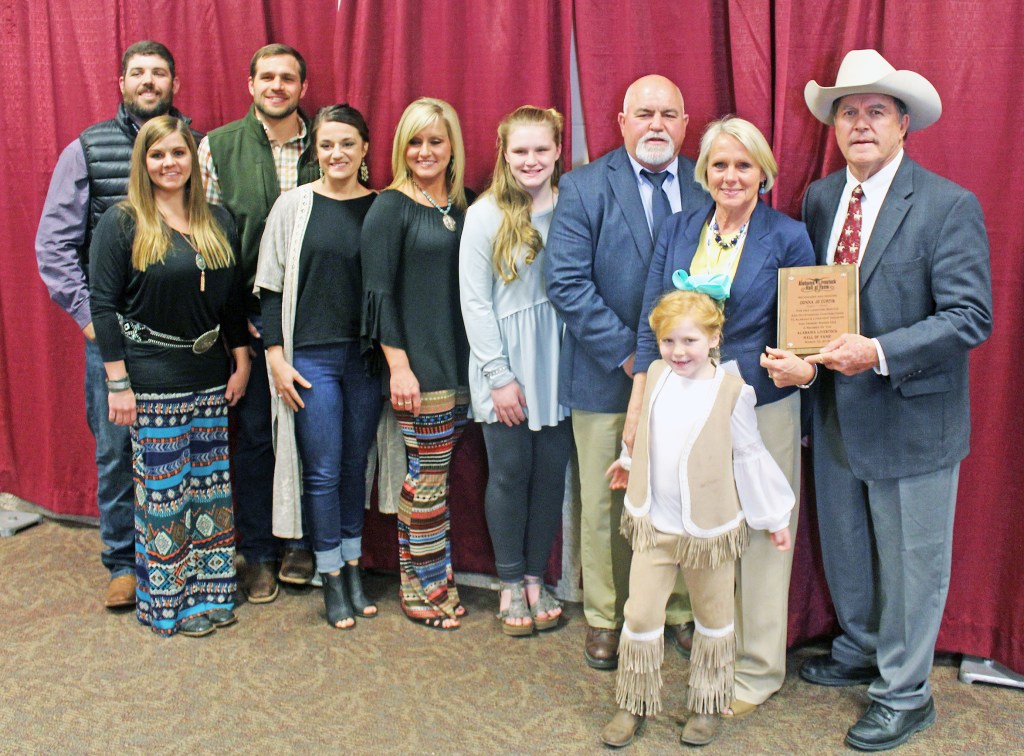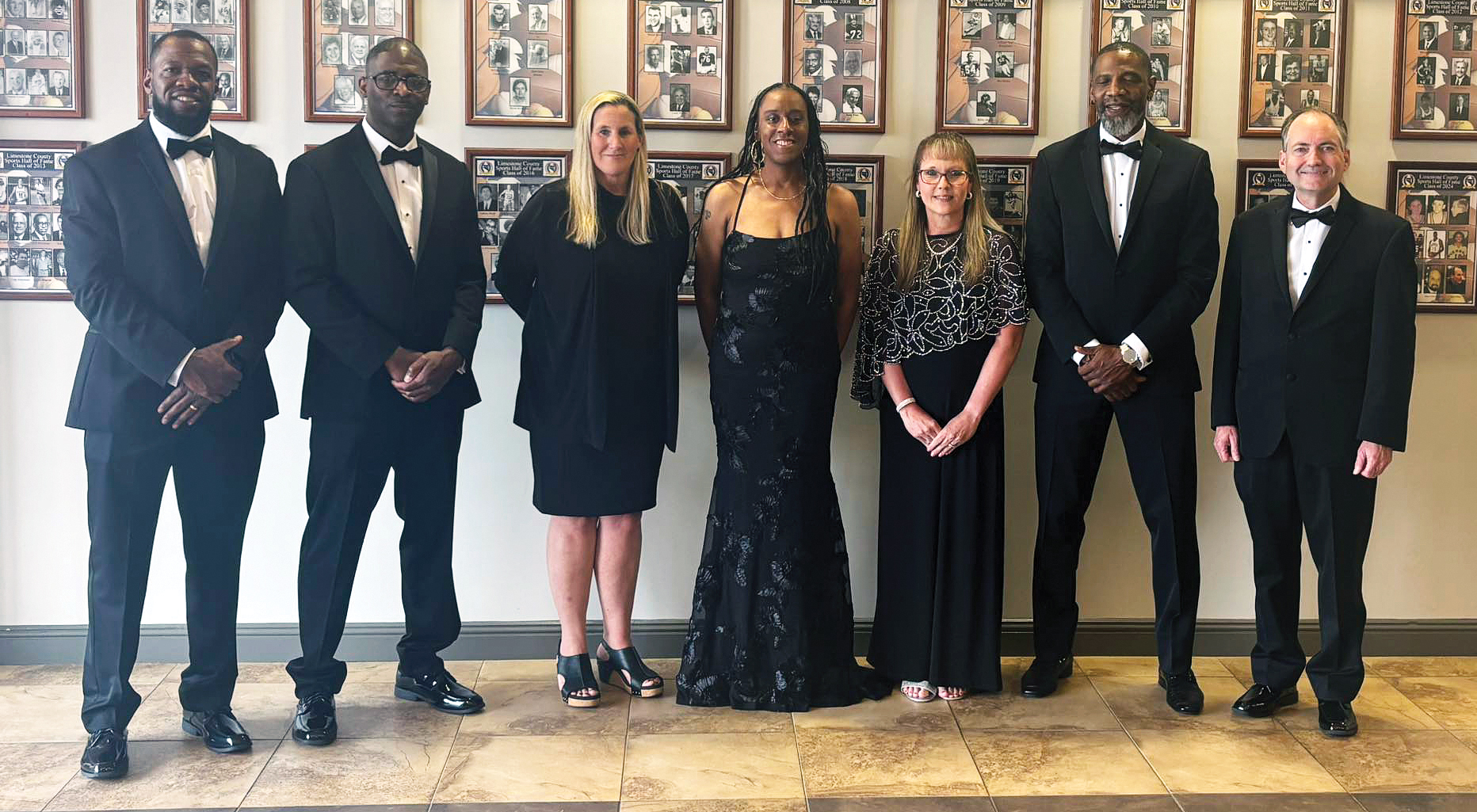THANK A FARMER: Curtis Farms going strong after 35 years
Published 1:00 pm Thursday, September 17, 2020

- Billy Powell, right, former executive vice president of the Alabama Cattlemen's Association, joins Donna Jo Curtis, second from right, and her family following her induction into the ACA Hall of Fame at the Von Braun Center in Huntsville. Joining her are Kyle Smith, Landria Smith, Landon Curtis, Whitney Curtis, Lauren Graham, Anna Grace Graham, John Curtis and Sara Beth Graham.
When it comes to the Curtis family of Limestone County, life on a farm seems to be part of their DNA. Co-owners John and Donna Jo Curtis both grew up on farms, started one themselves and now have three children who all work in the agriculture industry.
Donna Jo said she majored in agriculture in college and married someone, John, who did the same. They began raising beef cattle together and have been doing so for 35 years. She said they have 150 “mama cows” on around 500 acres of land. The farm is primarily located in Thach, while some of the land is located in Tennessee.
“We put our bulls in for 90 days,” Donna Jo said. “Our calves are born within 75 days. We work all of them and sell them on video sale through Tennessee Livestock Producers.”
Raising cattle means working year-round on some aspect of the operation.
“You have calving season, weaning season, hay season — it’s always season for something,” Donna Jo said.
Cattle at Curtis Farms are a mix of Hereford and Angus breeds. Both breeds originate in the United Kingdom, with British cattle generally noted as making good mothers.
Sharing the load
Donna Jo said she manages the cattle. Her husband John is the general manager of the Limestone Farmers Co-op. Their son John also helps at the co-op on top of work in data collection using GPS grid sampling.
Daughters Lauren and Landria are both ag teachers at local schools. Lauren works with students at the Limestone County Career Technical Center, while Landria teaches at Tanner High.
Donna Jo said her daughters like to make videos of work with cattle and different practices in action to show their students as a learning aid. While they may have different day jobs, the whole family comes together to help out during certain parts of the year.
“John and the kids help when we’re weaning and working the calves,” Donna Jo said. “John likes to (mow) after work when he has time. We keep them busy.”
She said it is exciting to have their three children all working in agriculture like their parents. Donna Jo said she and John tried to “scare” them in a different direction, “but they all seemed to venture back.”
“They understand the value of hard work and what it takes,” she said. “I’m glad they have a good work ethic. I think it’s a good life. It makes you appreciate life what the good Lord has blessed you with.”
Daily work
Donna Jo said a typical day on the farm for her depends on the season. Calving season is close right now. She checks on all the cattle and feeds them twice a day. She mows grass in between feedings.
“I’m a morning person,” Donna Jo said. “I like to get up early. You kind of have to in this line of work. You always have to be ready for the next season.”
She said being a morning person and a love for the outdoors, one her family members share, is likely what led her to working in agriculture.
“You’ve got to love it to keep it up,” Donna Jo said. “It’s still hard to keep up, but it’s honest work.”
One aspect of working with cattle is always being ready to handle something unexpected.
“A friend’s daughter may be getting married, and you hear you have cows out,” she said as an example. “We had a similar experience.”
State leader
On top of her work at Curtis Farms, Donna Jo has also spent time on several different agricultural boards. She was on the Future Farmers of America board until she became president of the Alabama Cattlemen’s Association — making her the second female president in the organization’s history.
ACA presidents serve a one-year term, and Donna Jo said her year in 2012 was “really fun.”
“You visit all the other counties in the state and tour different farms,” she said. “You go to the national meeting and talk with people from all over the country. You always learn something new, usually simple little things like, ‘Why didn’t I think of that?’ I really enjoyed visiting the other farms.”





